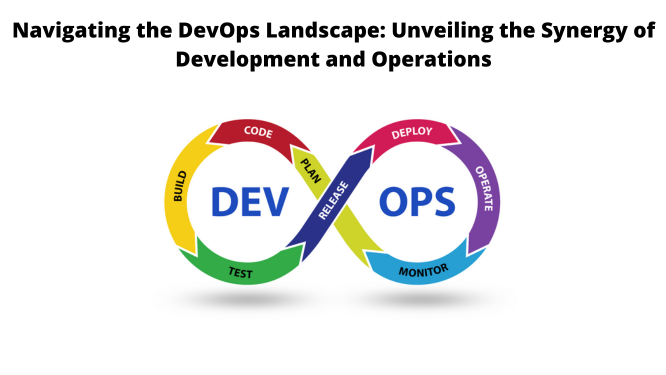In the dynamic realm of software development, DevOps has emerged as a cultural and technological movement, fostering collaboration between development and operations teams to deliver high-quality software at a rapid pace. Join us on a journey through the core principles, practices, and transformative impact of DevOps, as organizations strive for agility, efficiency, and continuous innovation.
Introduction: The DevOps Revolution
DevOps, a portmanteau of Development and Operations, transcends traditional silos by promoting collaboration, automation, and a shared responsibility for the entire software delivery lifecycle. It seeks to break down barriers, streamline processes, and accelerate the pace of software development. Become a job-ready DevOps professional by joining the Kelly Technologies DevOps Training in Hyderabad course.
Core Principles of DevOps:
- Collaboration: DevOps emphasizes cross-functional collaboration, encouraging open communication and shared goals between development, operations, and other stakeholders.
- Automation: Automation is a cornerstone of DevOps, enabling the continuous integration and continuous delivery (CI/CD) pipeline, automated testing, and infrastructure as code (IaC).
- Continuous Feedback: DevOps promotes a culture of continuous improvement through prompt feedback loops, ensuring rapid identification and resolution of issues throughout the development cycle.
Key DevOps Practices:
- Continuous Integration (CI): Developers integrate code changes frequently, allowing for early detection of integration issues and ensuring a reliable codebase.
- Continuous Delivery (CD): CD extends CI by automating the deployment process, enabling the delivery of production-ready software at any point in time.
- Infrastructure as Code (IaC): IaC treats infrastructure configurations as code, enabling the automated provisioning and management of infrastructure resources.
Real-world Impact:
- Accelerated Time-to-Market: DevOps practices significantly reduce the time required to deliver new features and updates, enhancing an organization’s ability to respond to market demands swiftly.
- Improved Collaboration: By fostering a collaborative environment, DevOps bridges the gap between development and operations, leading to better communication, shared responsibilities, and improved efficiency.
- Increased Reliability: Automation in deployment and testing processes enhances the reliability of software releases, minimizing the likelihood of errors and reducing downtime.
Challenges and Best Practices:
- Cultural Shift: The cultural shift towards DevOps may face resistance within organizations. Successful adoption requires commitment, education, and a focus on building a collaborative mindset.
- Security Integration: Embedding security practices into the DevOps pipeline is crucial to ensure the rapid delivery of software without compromising on security measures.
The Future of DevOps:
As technology evolves, the future of DevOps lies in the integration of artificial intelligence, machine learning, and advanced analytics. This convergence promises to optimize decision-making processes, enhance automation, and further streamline the software development lifecycle.
Conclusion: Embracing DevOps Excellence
DevOps is more than just a set of practices; it’s a cultural shift that redefines how organizations approach software development and delivery. Embracing DevOps principles equips teams with the tools and mindset needed to thrive in an era of continuous innovation. As organizations navigate the ever-changing landscape of technology, DevOps stands as a guiding philosophy, empowering them to deliver software with unprecedented speed, reliability, and efficiency

